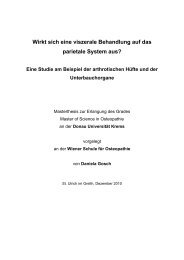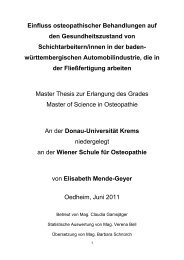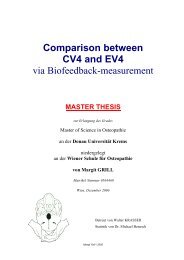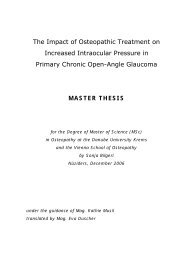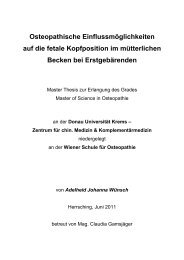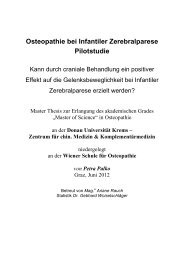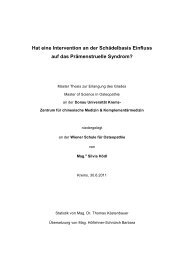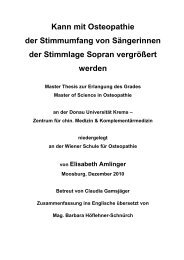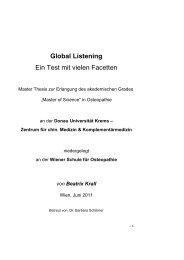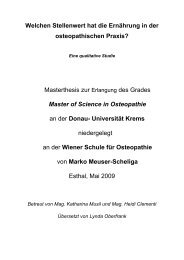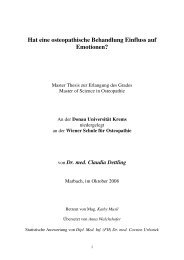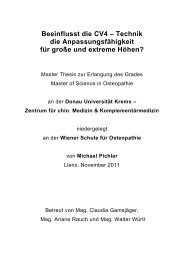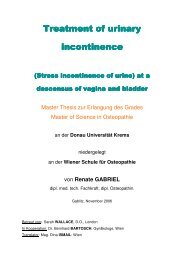Risch Andreas.pdf - Osteopathic Research
Risch Andreas.pdf - Osteopathic Research
Risch Andreas.pdf - Osteopathic Research
Sie wollen auch ein ePaper? Erhöhen Sie die Reichweite Ihrer Titel.
YUMPU macht aus Druck-PDFs automatisch weboptimierte ePaper, die Google liebt.
MEANINGFULNESS, FULLFILMENT). The low frequency of the category of<br />
“Illness/Helping” (3%) also indicates in my opinion that a shift of pradigms from<br />
patho- to salutogenesis already occurred among the osteopaths.<br />
The concept of “HUMAN BEING AS A MACHINE” and mechanical ways of<br />
describing biological or organic observations, which were used frequently in older<br />
osteopathic literature especially by A.T. Still (1902), was not confirmed to be relevant<br />
in the interviews. Whenever there were metaphors used in the “STC” category they<br />
were pointing more in the direction of process oriented concepts for health (HEALTH<br />
AS PROCESS, PATTERN, REGULATION, INTERACTION) of osteopaths as<br />
mentioned earlier.<br />
9.1 Summary of Findings<br />
High Grade of metaphorization (3,9 %) in osteopathic language.<br />
Highest single categories of metaphors: „Other sensory perception<br />
(OSP) (15%), „Orientation“ (12%), “Science/Technique/Craft“ (STC)<br />
(10%).<br />
The most important concepts of health in osteopathy are: HEALTH<br />
AS (sensory) EXPERIENCE (25%), HEALTH AS (sociological)<br />
EXPERIENCE (20%), HEALTH AS CHANGE (14%), HEALTH AS<br />
ASSOCIATION (11%), HEALTH AS (technological) EXPERIENCE<br />
(10%)<br />
Conflicts in the integration of subjective personal experience and<br />
osteopathic professional understanding of health.<br />
Good competence for change and adaptation with deficits in<br />
communication and exchange of osteopathic contents about health.<br />
Technical and biomechanical concepts become less prevalent with<br />
increasing professional experience in favour of a process oriented<br />
approach.<br />
Low metaphor preferences for organic, rhythmic and movement<br />
oriented concepts for health.



